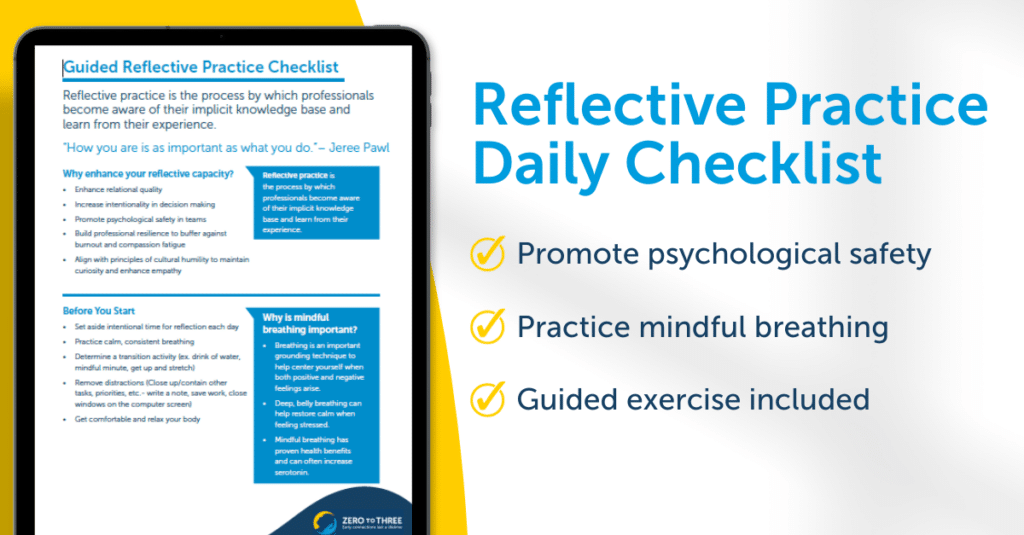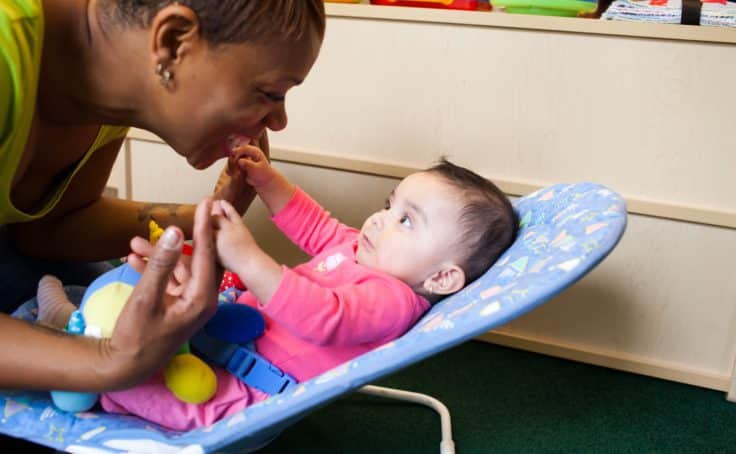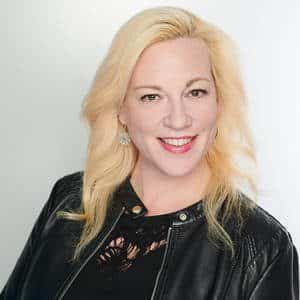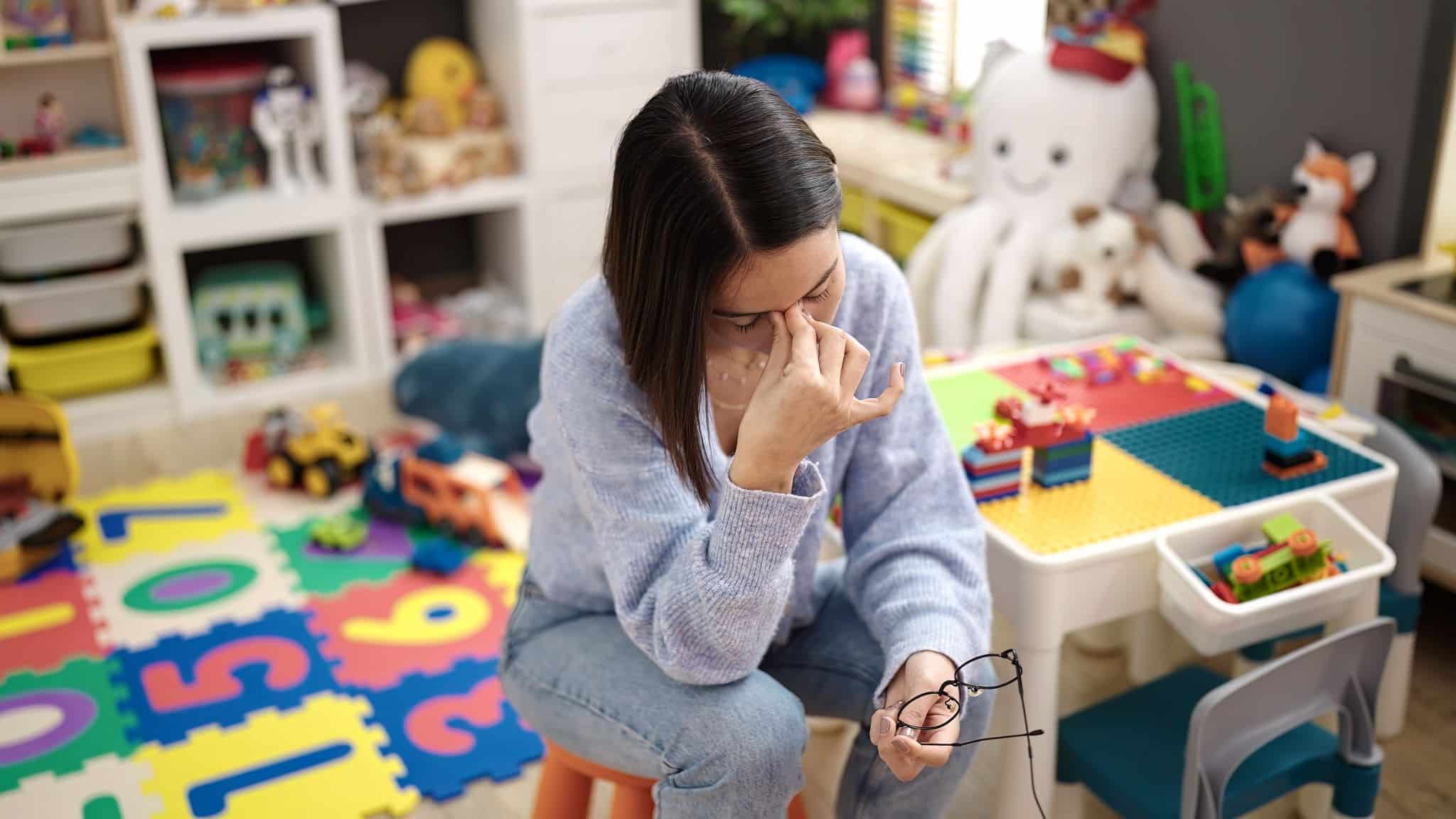Reflective Practice Requires Practice
Our reflective practice daily checklist helps early childhood professionals set intention to make it part of their routine.



Sarah LeMoine, Senior Director of Professional Innovations at ZERO TO THREE, has dedicated over 30 years to enhancing early childhood professional development through roles in direct service, research, curriculum design, and policy advocacy. She co-authored ZERO TO THREE’s Critical Competencies for Infant-Toddler Educators™ and plays a leadership role in initiatives such as the LEARN Conference and membership programs, aiming to empower those who support young children.
Great educators do more than teach — they cultivate a way of being that shapes their interactions, decisions, and long-term impact. The foundation of meaningful practice lies in four key dispositions for early childhood educators: self-awareness, curiosity, reflection, and intention. These qualities aren’t about rigid techniques but about mindset. They focus on how educators see themselves, their students and their personal role in shaping learning.
When embraced, these dispositions strengthen relationships, deepen learning and create a more fulfilling teaching experience. They are small shifts that, over time, can transform an educator’s vision and practice.
Self-awareness is a foundational tenet of great teaching. It’s the willingness to see yourself with honesty — not judgment — and a deeper understanding of your actions, reactions and impact.
Curiosity fuels connection and discovery. It’s a willingness to approach children — not with assumption or certainty — but with a sense of wonder.
Reflection is the habit of pausing — before, during, and after moments in teaching — to consider what is happening and why. It’s a willingness to look twice, to step back, and to grow from experience.
Our reflective practice daily checklist helps early childhood professionals set intention to make it part of their routine.

Intentional educators take the long view. They keep their hopes — both for children and for themselves — at the center of their practice.
At the heart of these four dispositions is mindfulness—the ability to be fully present in the moment. Mindfulness is a tool that enhances emotional regulation, co-regulation with children, and self-reflection. It allows educators to tune into what’s happening around them and within them, creating a practice that is not just effective but deeply rewarding.
By cultivating self-awareness, curiosity, reflection, and intention, educators transform their daily work. These small yet powerful shifts lead to stronger relationships, better learning outcomes, and a more sustainable and fulfilling career in early childhood education.
ZERO TO THREE's Critical Competencies for Infant-Toddler Educators™
Our competency model defines the specific knowledge and practices required for infant-toddler educators to be successful now, to support the future of our children.


|
2025 LEARN Conference registration is now open! Join us in Baltimore Oct. 8-9.
|